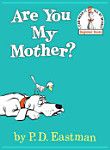 How many times has a well meaning friend or colleague, after hearing a sliver of a story about your toxic mom, offered advice to find “common ground?”
How many times has a well meaning friend or colleague, after hearing a sliver of a story about your toxic mom, offered advice to find “common ground?”
The common ground comment is usually followed by comments like these:
“She’s the only mother you’ll ever have.”
“You’ll miss her when she’s gone.”
“You may regret cutting her off later.”
“Other people in your family can handle her, why can’t you?”
“Maybe if you tried harder?”
One of the quickest ways I know to nip this suggestion in the bud is to offer the suggestion that your friend replace ‘toxic mom’ with ‘boyfriend who beats me.’ This usually flummoxes them a bit. But it’s a valid suggestion. Your friend can’t quite imagine a mother starving her child, or abusing or neglecting her teen. Harder still to imagine a mother who uses a child for sexual predator bait (meaning, she’s tired of being raped or abused, so she lets you have that job for awhile), or a mother who steals your after school job money you’ve hidden, or even a mother who does all that – for years – and then one day kicks you out for, Oh, I don’t know, being too pretty, or smart, or ambitious.
But a friend can imagine a boyfriend or spouse abusing you. If you told your friend that story, you’d probably be offered a spare room, a spare car and lots and lots of help.
But if you are trapped by your toxic mother and confess to a close friend the depth of the situation, they might look at you like you’ve lost your mind. And the talk goes on. Your friend suggests that, yes, you may not like your mom’s parenting style, but certainly she wants what is best for you. Surely, there must be some common ground?
It’s sort of like when you go to the dentist and the dentist blames you for plaque like you’re the bad person, the non-flosser, the one who couldn’t manage your own mouth. Sometimes because of abuse or neglect you grow up without regular dental visits. Sometimes you are trained by your toxic mom to be afraid of medical professionals because, you know, they see things. So you don’t go to the dentist as often as other do. Dirty plaque – like dirty family secrets – builds up.
Sometimes friends with kinder families can’t imagine the cat-clawing-up-the-curtains fear that a terrible mother can inspire. They think finding common ground, as an adult is as easy as flossing. You just decide to do it and it all works out.
Your friend, this lucky person, has no reference for what you experienced – (maybe read some Dave Eggers?) – and the best you can offer them is to wait until they catch up. You could loan them your copy of Toxic Mom Toolkit. Remind them that many successful people rose above their rising, just like you are trying to do.
Maybe the two of you can try to understand each other’s point of view when it comes to family history, family dynamics, generational pathology and making peace with all that. That conversation might include the shocking news that yes; an abuser is an abuser, even if that abuser is your mom. Maybe the best common ground you can shoot for is creating common ground between two friends.
















